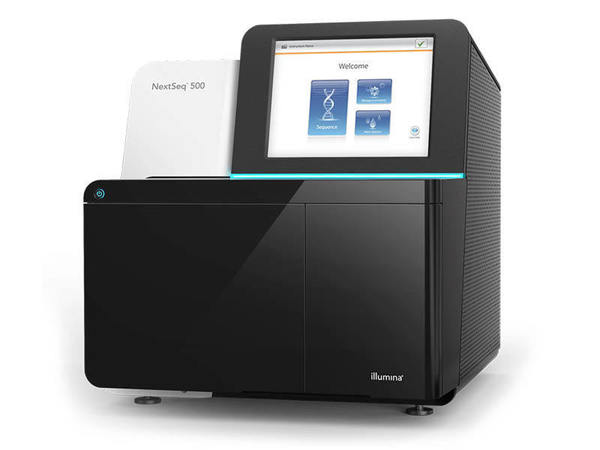

The new system for high-throughput sequencing supports health and environmental research
From cancer to vector-borne diseases, and from drug development to monitoring invasive species, DNA sequencing is vital to the research being done at the University of Notre Dame. To support these research efforts, the Genomics and Bioinformatics Core Facility (GBCF) has acquired an illumina NextSeq 500 Sequencing System, for next generation high-throughput genomics sequencing.
The new machine supports a broad range of applications that can sequence millions of DNA fragments. To explain the benefits of the new equipment, Michael Pfrender, associate professor of biological sciences and director of the GBCF, said, “By providing the research community access to industry-leading technology, the GBCF will be able to better support researchers who increasingly rely on high-throughput DNA sequencing to complete their work. This equipment increases sequencing availability and flexibility, further expanding research and collaborative potential.”
The illumina NextSeq 500 Sequencing System will complement existing GBCF equipment with key applications including whole genome, exome, or transcriptome sequencing, thereby providing exceptional data accuracy at any coverage level. Additionally, the facility now has the capability to perform high throughput next generation sequencing in house at a low-cost per base with faster results. This will allow faculty to utilize the GBCF staff’s expertise in data generation throughout the entirety of their experiments.
The GBCF is a resource accessible to the Notre Dame research community, external academic institutions, and industry. It is also an Indiana Clinical and Translational Sciences Institute (CTSI) approved core facility with services available to all Indiana CTSI partners. Funding for the system was provided through the Notre Dame Research Equipment Restoration and Renewal internal grant program, the Eck Institute for Global Health, and the Harper Cancer Research Institute.
To learn more about illumina sequencing services, please visit http://genomics.nd.edu/illumina-sequencing-services.
Contact:
Melissa Stephens / Assistant Director
Genomics and Bioinformatics Core Facility / University of Notre Dame
stephens.49@nd.edu / 574.631.0338
About Notre Dame Research:
The University of Notre Dame is a private research and teaching university inspired by its Catholic mission. Located in South Bend, Indiana, its researchers are advancing human understanding through research, scholarship, education, and creative endeavor in order to be a repository for knowledge and a powerful means for doing good in the world. For more information, please see research.nd.edu or @UNDResearch